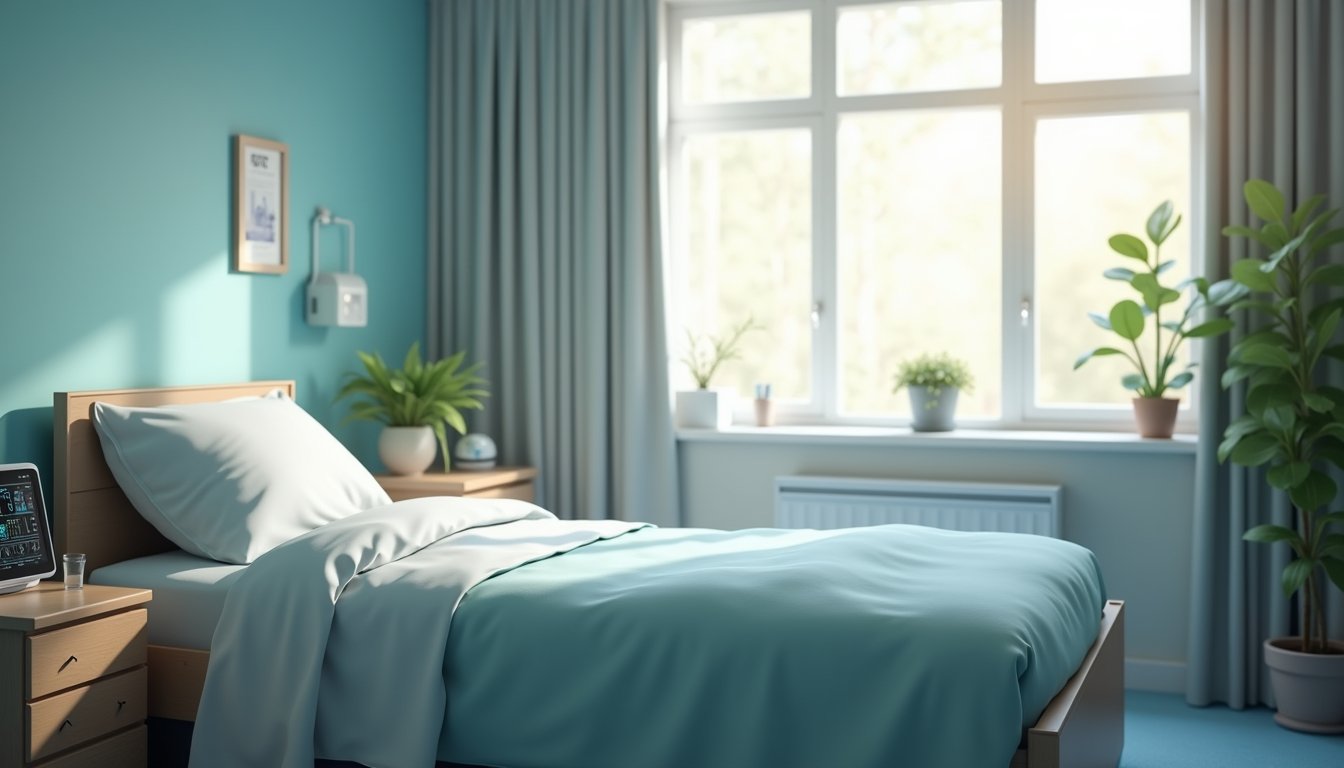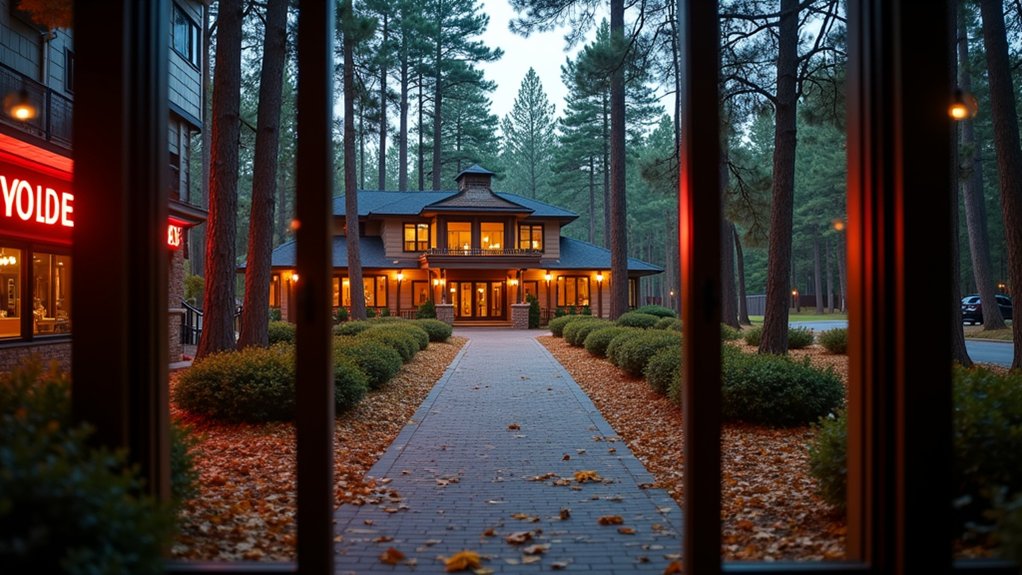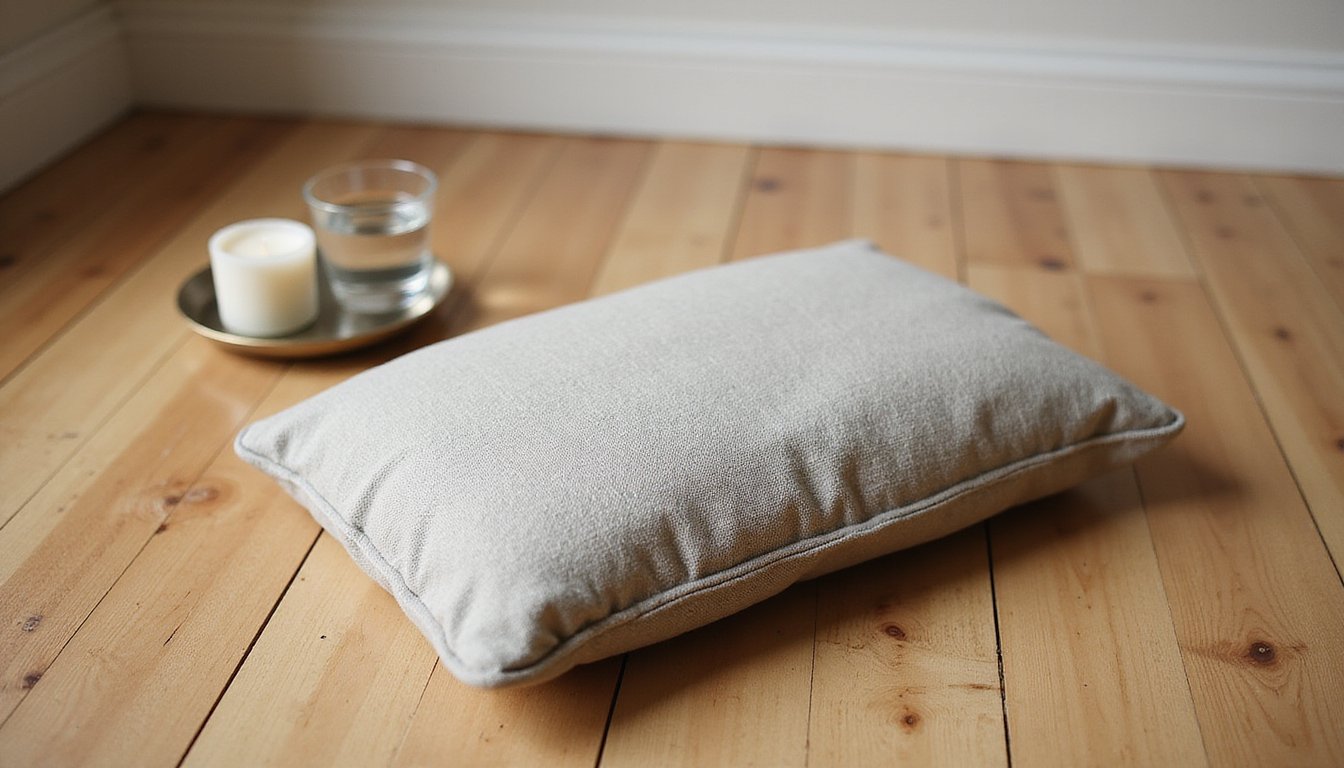Residential addiction treatment gives you markedly higher chances of success compared to outpatient programs, with 70% completion rates versus only 45% retention at one month. You’ll benefit from 24/7 medical supervision, structured daily routines, and complete separation from triggering environments. The controlled setting helps you focus entirely on recovery while receiving immediate crisis support and medication management. Understanding these key advantages will help you make an informed treatment decision for your specific needs.
The Power of 24/7 Medical Supervision

While addiction recovery presents numerous challenges, 24/7 medical supervision in residential treatment provides essential safeguards against life-threatening complications. You’ll receive immediate crisis response through continuous monitoring of withdrawal symptoms, ensuring improved medical interventions when needed. Medical staff can quickly address seizures, psychosis, or severe anxiety that may emerge during detox. A personalized treatment plan tailored to your specific needs guides your recovery journey. Patients benefit from a supportive peer community that understands their unique challenges and provides encouragement throughout recovery.
The structured environment dramatically reduces risk of relapse through controlled medication administration and round-the-clock crucial sign monitoring. You’ll benefit from real-time adjustments to your detox protocol based on your physiological responses, preventing complications like dehydration or cardiovascular issues. The medical team can also manage any co-occurring health conditions while maintaining precise oversight of your withdrawal timeline, ensuring a safer and more comfortable recovery process through evidence-based interventions. Cognitive behavioral therapy sessions help residents develop healthier coping mechanisms during their stay.
Enhanced Treatment Completion Success Rates
Residential addiction treatment programs demonstrate superior completion rates, with 70% of patients successfully finishing their prescribed course of care compared to lower outpatient retention.
You’ll find that the structured environment of residential facilities provides essential safeguards against common barriers to completion, including home stressors and relapse triggers that often derail outpatient participants. Studies show that long-term recovery rates improve significantly with 90-day residential programs. With drug overdose deaths surpassing 108,000 in 2022, the importance of completing addiction treatment has never been more critical. Research indicates that medication-assisted treatment significantly improves the likelihood of successful program completion.
Your chances of completing treatment increase markedly in residential settings due to continuous monitoring, consistent routines, and immediate access to support during challenging phases of early recovery.
Higher Program Retention Rates
Treatment completion stands as a critical measure of addiction recovery success, with stark differences between residential and outpatient programs. You’ll find noticeably higher treatment adherence in residential settings, where structured environments support sustained engagement. While outpatient programs retain only 45.2% of patients at one month and 11.3% at twelve months, residential frameworks demonstrate stronger retention metrics. Notably, the first three months of treatment represent a particularly vulnerable period with elevated mortality risks for patients in outpatient settings. Married patients show significantly higher retention rates across all treatment modalities.
| Program Type | 1-Month Retention | 12-Month Retention |
|---|---|---|
| Outpatient | 45.2% | 11.3% |
| Methadone Maintenance | Not reported | 20.45% |
| Residential OST | Not reported | 57% |
The data reveals that improved aftercare planning and higher methadone doses (above 80 mg/day) in residential settings contribute to better outcomes. Your chances of maintaining long-term recovery increase considerably in residential treatment, where standardized protocols and controlled environments optimize medication management and support systems.
Structured Environment Drives Success
When examining addiction recovery outcomes, structured environments emerge as a decisive factor in treatment success rates. Residential programs offering tailored programming demonstrate markedly higher completion rates at 70%, compared to outpatient settings at 40% completion rate. The controlled environment, coupled with holistic approaches, directly addresses the complexities of severe substance use disorders through comprehensive support systems.
- 24/7 professional supervision minimizes relapse risks during critical early recovery phases
- Integrated mental health and addiction services guarantee coordinated care under one roof
- Structured daily schedules and mandatory therapy attendance enforce accountability
- Multi-disciplinary teams provide immediate response to emerging challenges
In residential settings, you’ll find that environmental triggers are effectively removed, creating an ideal space for recovery. This structured approach proves especially beneficial for those with co-occurring conditions or complex substance use patterns requiring intensive support.
Creating Distance From Triggering Environments

Physical separation from your familiar using environment provides a vital barrier against relapse triggers during early recovery. You’ll experience a complete break from enabling influences, toxic relationships, and geographical access points that previously facilitated substance use. With 24-hour medical support available, you can safely navigate withdrawal symptoms while remaining focused on healing. Research shows that treatment completion rates are significantly higher in residential settings compared to outpatient programs. This deliberate distance allows you to focus entirely on your recovery journey while developing new behavioral patterns in a controlled, therapeutic setting. The highly structured schedule helps clients maintain focus and maximize their treatment engagement through carefully planned daily activities.
Physical Separation Benefits
Creating distance from environments that trigger substance use serves as a cornerstone benefit of residential addiction treatment. By establishing physical separation from locations and situations associated with substance use, you’ll experience minimized distractions and reduced relapse risks during your recovery journey.
You’ll be removed from areas where drugs or alcohol are readily available, including bars, parties, and neighborhoods associated with substance use. You’re separated from individuals who might enable or encourage continued substance use. You gain protection from environmental cues that could trigger cravings or relapse. You’re placed in a controlled, substance-free setting that supports your recovery goals. A structured daily routine helps maintain focus while preventing exposure to outside triggers. Medical supervision is available 24/7 to help manage withdrawal symptoms and provide immediate care when needed.
This physical separation creates a vital buffer zone, allowing you to focus entirely on your recovery without the immediate pressures and temptations of your usual environment.
Breaking Old Behavior Patterns
Residential treatment programs strategically disrupt entrenched behavioral patterns through thorough environmental restructuring. You’ll experience complete immersion in a controlled setting where therapists guide you through intensive cognitive-behavioral interventions while rebuilding healthy habits. The 24/7 supervision guarantees immediate response to potential triggers and prevents reversion to destructive patterns.
Leveraging structured activities, these programs replace maladaptive routines with purposeful daily schedules focused on wellness and recovery. You’ll participate in mandatory therapy sessions, life skills training, and community-based activities that systematically reconstruct your behavioral framework. These programs typically span 28 days to 6 months, allowing sufficient time for deep behavioral transformation. Through peer support networks and professional oversight, you’ll develop new coping mechanisms while dismantling old triggers.
This all-encompassing approach ensures you’re equipped with practical tools for maintaining sobriety, supported by continuous accountability and therapeutic intervention.
Comprehensive Support for Complex Cases
The extensive support offered in residential treatment programs provides critical interventions for individuals struggling with severe addiction and co-occurring disorders. You’ll receive specialized care through intensive group counseling and family dynamics sessions, while medical professionals monitor your progress 24/7. This thorough approach guarantees both your safety and successful recovery through evidence-based treatments.
Coordinated care teams manage complex mental health conditions alongside addiction treatment. Structured environments eliminate access to substances while teaching essential life skills. Medical supervision verifies safe detoxification and medication-assisted treatment. Higher completion rates for severe cases compared to outpatient programs.
This integrated treatment model addresses the full spectrum of your recovery needs, from medical stabilization to psychological healing, making it particularly effective for challenging cases requiring intensive support.
Structured Daily Routines and Recovery Focus

Structured daily schedules form the cornerstone of effective residential addiction treatment, providing essential stability through continuous supervision and purposeful activities. You’ll benefit from 24/7 professional oversight while following predetermined routines that maximize your recovery potential through intensive therapy sessions and wellness activities.
Your customized treatment plans integrate psychological, physical, and spiritual components, ensuring you receive care tailored to your specific needs. Through holistic wellness practices like meditation and art therapy, you’ll address recovery thoroughly while building essential life skills. The controlled environment eliminates external distractions and triggers, allowing you to focus entirely on your healing journey.
Regular evaluations and progress monitoring help maintain your engagement with recovery goals, while skill-building workshops prepare you for successful reintegration into daily life post-treatment.
Building Strong Peer Support Networks
Beyond structured daily routines, peer support networks serve as powerful catalysts for sustained recovery success in treatment settings. Residential programs offer immersive personalized peer networking through shared living spaces and diverse social activities, while outpatient programs provide flexible engagement options that align with your daily responsibilities.
Residential treatment’s 24/7 peer availability enables spontaneous support and crisis intervention through constant community interaction. Studies show that patients who engage with peer mentors are more likely to maintain long-term sobriety. Outpatient programs facilitate real-world accountability as you navigate recovery challenges in active daily contexts. Both settings offer structured group therapy sessions, though residential programs provide more intensive in-person engagement. Each environment develops lasting support networks differently residential through prolonged shared experiences, outpatient through local community connections.
The key difference lies in how you’ll build and maintain these crucial relationships based on your specific recovery needs and lifestyle demands.
Immediate Access to Crisis Management
When managing addiction crises, immediate access to professional intervention can mean the difference between life and death. In residential treatment, you’ll have 24/7 access to clinical staff who can provide rapid crisis stabilization for emergencies like severe withdrawal symptoms, overdoses, or psychiatric episodes.
Access to 24/7 professional care during addiction emergencies provides critical lifesaving support when every minute matters.
Multidisciplinary treatment teams, including medical professionals, psychiatrists, and counselors, work together to address critical situations immediately. You’ll benefit from secure facilities equipped with on-site evaluation tools and emergency protocols, eliminating dangerous delays in care.
The structured environment drastically reduces relapse risks during vulnerable periods by providing constant supervision and removing access to triggers.
Unlike outpatient programs, residential facilities offer immediate psychiatric interventions, medically managed detox, and specialized crisis protocols for complex cases involving multiple substances or co-occurring mental health conditions.
Specialized Care for Severe Substance Dependencies
Residential treatment facilities excel at addressing severe substance dependencies through thorough, personalized care protocols. You’ll receive concentrated therapeutic support within a highly structured environment designed to maximize your recovery outcomes.
Through specialty trauma-informed therapies and holistic wellness programs, residential facilities provide all-encompassing care that adapts to your specific needs.
- Round-the-clock supervision guarantees continuous support and immediate assistance when you face challenges
- Intensive behavioral therapy programs, including multiple daily sessions of evidence-based treatments
- Structured daily schedules that combine therapy, education, and wellness activities
- Integrated peer support networks that foster connection and shared recovery experiences
This level of specialized care creates an immersive healing environment where you can focus entirely on your recovery journey without external distractions or triggers.
Full Integration of Medical and Therapeutic Services
A core advantage of full-time treatment facilities lies in their thorough integration of medical and therapeutic services. You’ll benefit from seamless coordination between physicians, therapists, and social workers who make data-driven treatment adjustments based on your daily progress. The unified team approach enables tailored pharmacological interventions that can be modified in real-time to optimize your recovery outcomes.
| Service Component | Residential | Outpatient |
|---|---|---|
| Medical Support | 24/7 on-site care | External referrals |
| Treatment Coordination | Unified team approach | Fragmented care |
| Medication Management | Daily monitoring | Limited oversight |
This integrated model greatly reduces treatment gaps while providing extensive care under one roof. Unlike outpatient programs that rely on external medical providers, residential facilities offer immediate access to medical supervision, detox services, and crisis intervention creating a more effective therapeutic environment for your recovery journey.
Frequently Asked Questions
How Long Does Insurance Typically Cover Residential Addiction Treatment Programs?
Your insurance coverage duration for residential addiction treatment typically ranges from 30 to 90 days per benefit period. You’ll find most insurers initially approve 30-day stays, with extensions possible based on clinical necessity.
Program affordability depends on your plan’s specific limits and requirements. During your first year of treatment, you’re likely to receive more flexible coverage, but subsequent stays may require additional documentation to justify continued residential care.
What Personal Items Are Allowed or Prohibited in Residential Treatment Facilities?
You’ll find that residential treatment facilities maintain strict policies about personal items. While basic toiletries, comfortable clothing, and approved medications are generally permitted, most facilities limit personal electronics to non-internet devices like basic MP3 players.
You can bring cell phones and laptops, but their use is typically restricted to specific times. Recreational items that could disrupt treatment are prohibited, and all sharp objects or alcohol-based products are strictly forbidden.
Can Family Members Visit During Residential Treatment, and How Often?
Yes, you can receive family visits during residential treatment, but visitation policies vary by facility. You’ll typically need to complete an initial stabilization period before visits begin.
Most centers offer weekly or biweekly supervised visits in designated areas, requiring advance scheduling and therapist approval. Family involvement often includes mandatory participation in therapy sessions and educational workshops.
The facility will screen visitors and prohibit unauthorized items to maintain a safe recovery environment.
What Happens if Someone Needs to Leave Treatment Early for Emergencies?
If you need to leave treatment early due to unexpected family issues or work-related emergencies, you’ll need to follow specific discharge protocols to safeguard your wellbeing. The treatment center will conduct a risk assessment, create an emergency discharge plan, and connect you with telehealth support and community resources.
You’ll receive guidance on medication management, relapse prevention strategies, and emergency contacts. It’s vital to maintain contact with your treatment team during this shift.
Are There Age Restrictions or Limitations for Residential Treatment Programs?
Yes, you’ll find varying minimum age requirements across residential treatment programs. Most facilities have specific age policies, with only 45% accepting adolescents under 18.
When you’re seeking treatment for minors, you’ll need parental/guardian consent except in life-threatening situations. Program acceptances often depend on specialized care capabilities, with some facilities exclusively serving adults.
Teen-focused programs typically require family involvement and consider developmental needs in their treatment approach.





